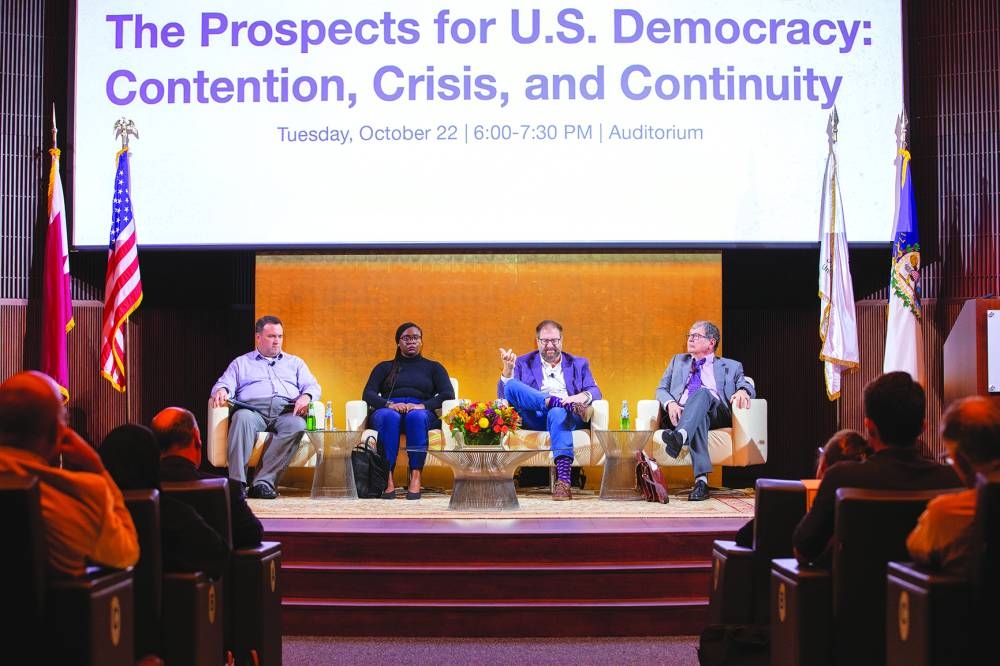At Georgetown University in Qatar (GU-Q), in collaboration with experts from Georgetown’s campus in Washington, DC, a distinguished panel of political scientists delivered a sobering analysis on 'The Prospects for US Democracy: Contention, Crisis, and Continuity,' warning that the outcome of the 2024 US election could have profound global implications far beyond American borders.
GU-Q associate professor, Paul Musgrave didn’t mince words when discussing the potential foreign policy consequences. “Everything’s up for grabs” with a Donald Trump presidency, he declared. From Trump’s unpredictable handling of global affairs to volatile decisions on Israel, Gaza, and Ukraine, Prof Musgrave stressed that “being unpredictable is not a quality you want in somebody who manages a global superpower.”
By contrast, Musgrave pointed out that a Kamala Harris presidency would likely continue the approach of the current administration. “It’s actually very easy to talk about Kamala Harris’ foreign policy. If Harris is elected, it will be mostly like Joe Biden’s,” he explained.
While Musgrave painted a picture of the global uncertainties tied to the election, GU-Q Prof Clyde Wilcox turned the spotlight inward, focusing on threats to US democracy itself. “Donald Trump is no ordinary candidate,” he cautioned, noting the former president’s repeated attempts to undermine the 2020 election. “He’s going to try to do it again,” Wilcox warned, describing how Trump’s unchecked influence could unravel democratic norms. “He’s a lot angrier... and very much less coherent” than he was eight years ago, he added, illustrating the heightened risks this time around.
While the panel dissected the personal and political forces at play, Georgetown University associate professor, Hans Noel shifted the discussion to broader political science principles. Noel explained: “Journalists tend to focus on the personalities of the candidates,” but fundamentals like the economy and partisan breakdowns remain the most critical factors, even though Trump’s presence on the ballot complicates the usual predictions.
The conversation also focused on the critical issue of voter access, with GU assistant professor Jamil Scott bringing the discussion back to the grassroots. “It’s wonderful that they’re joyful,” Scott noted, referencing the resilience of voters standing in long lines. “But they're standing in really long lines to vote.” She highlighted how restrictive voter ID laws disproportionately affect communities of colour, creating barriers that could influence the election outcome. “Race and gender are weaved into this in ways that seem innocuous, but are endemic to how American politics is at work,” she concluded, highlighting the complex dynamics that make it difficult to predict a victor.
By the end of the public talk, one message was clear: the 2024 US election isn’t just a routine contest for power — it’s a pivotal moment that could reshape the future of democracy and alter the course of global politics.

Participants in the discussion
